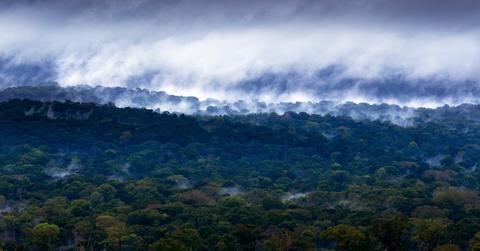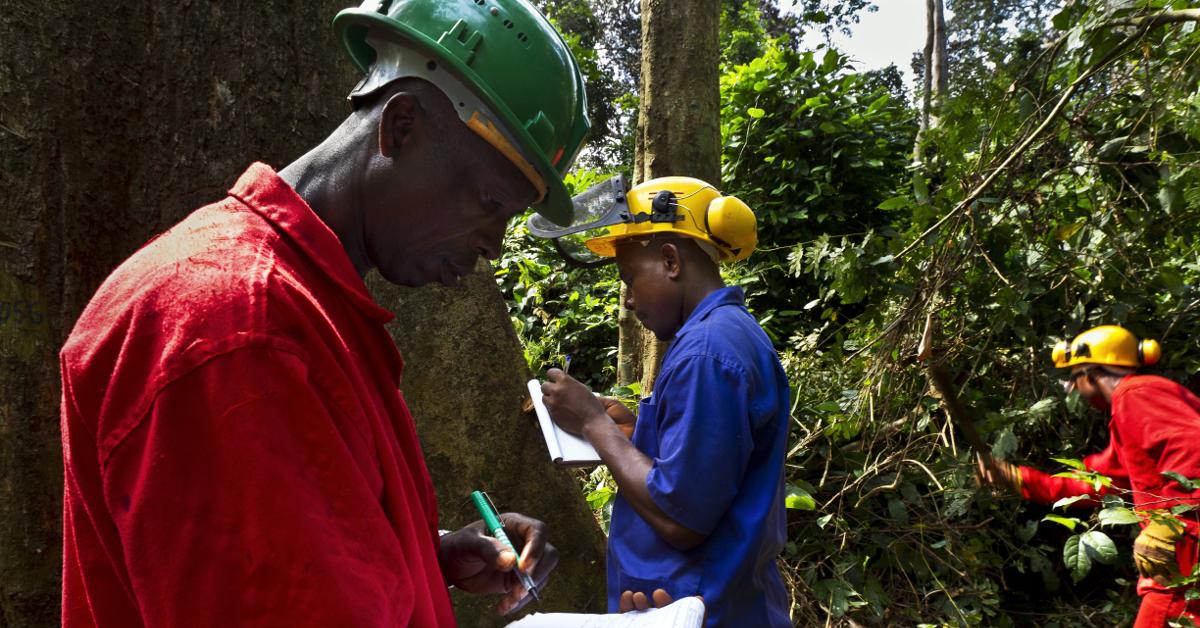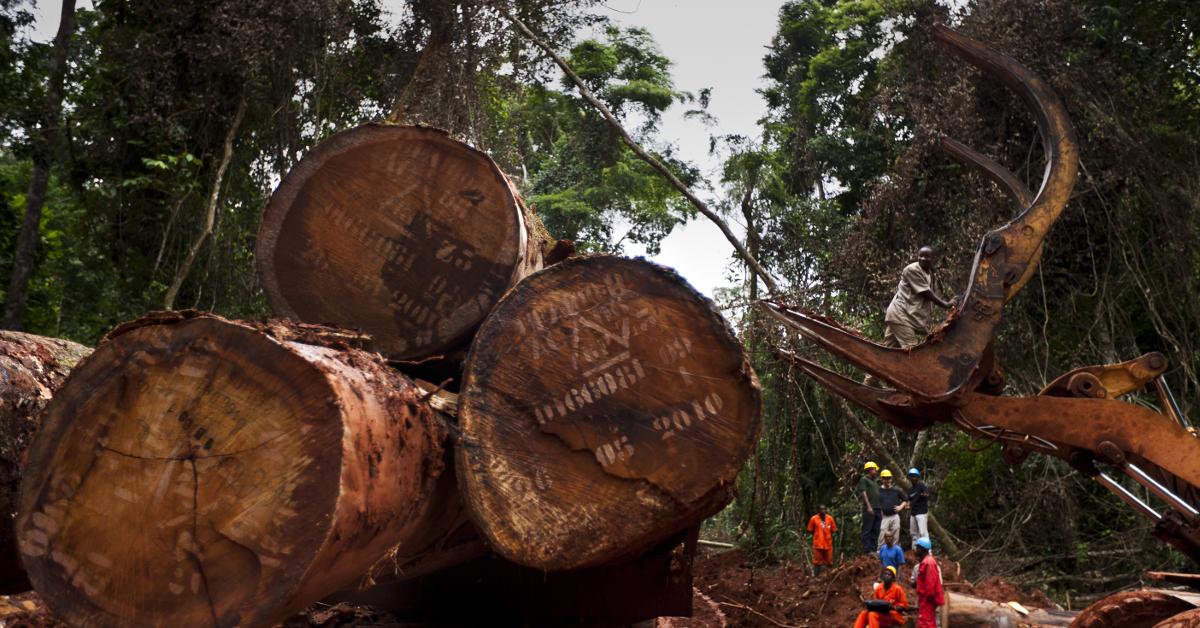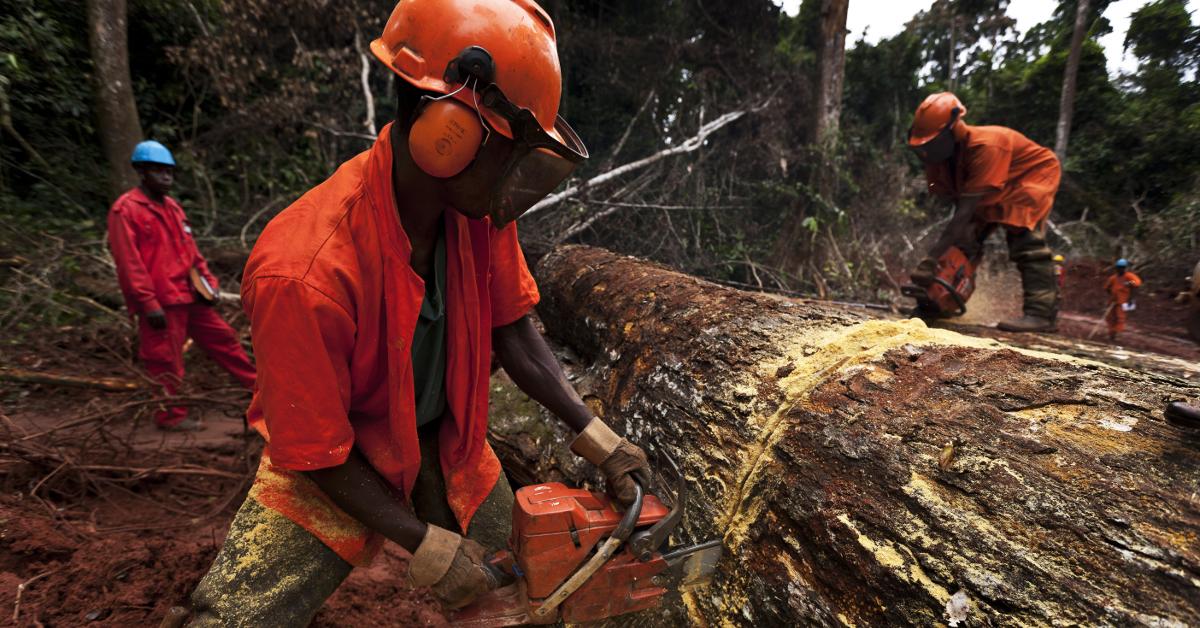African Countries That Used Satellite Monitoring Cut Deforestation by 18 Percent
Updated Jan. 6 2021, 9:18 a.m. ET

The balancing act of maintaining inhabitable ecosystems for both humans and animals is a delicate act that requires tons of careful planning and regulations on the behalf of governments. Natural resources are being consumed by our species at such alarmingly fast rates that advocating for sustainability in many industries seems like a losing battle. But there are some victories to be had, especially in these African countries that were able to reduce deforestation by a whopping 18 percent.
While it's naive to think that humanity at this point will swear off of chopping down trees en masse for good, there are protocols that can be implemented to ensure a more sustainable model of harvesting lumber for our consumption. Thanks to the satellite monitoring system designed by GLAD, the Global Land Analysis and Discovery system, key African nations were able to reduce deforestation by 18 percent in just two years.
The news should be welcomed by the most hard-nosed of business people and economists as well. According to a recent news article published by the University of Wisconsin-Madison, the savings resulting from the reduction in carbon emissions range anywhere from $149 million to $696 million. These fiscal numbers are "based on the ability of lower emissions to reduce the detrimental economic consequences of climate change."

The subscription to the forest satellite monitoring service is completely free of charge; it's called Global Forest Watch. The initiative officially debuted in 2016 and nations that are concerned about maintaining their forests can sign up for it and receive alerts on regions that require greater levels of forestation and/or ecological preservation and protection.
Fanny Moffette, a PhD researcher at the Nelson Institute for Environmental Studies and the Department of Agricultural and Applied Economics at the University of Wisconsin-Madison combined efforts with Jennifer Alix-Garcia at Oregon State University, Katherine Shea at the World Resources Institute, and Amy Pickens at the University of Maryland.
Their work laid the foundation for the Global Forest Watch to become a reality.
They studied deforestation trends in 22 separate tropical countries in Asia, Africa, and South America between the years of 2011 and 2018. The findings that they gathered highlighted an effective way of reducing carbon emissions that were less labor-intensive and yielded better results in a shorter time frame than regrowing forests: by simply reducing deforestation.
Between 6 percent and 17 percent of carbon emissions are caused each year by deforestation, and the World Resources Institute points out that tropical rainforest deforestation is responsible for more CO2 emissions than the entire EU combined. So by maintaining and protecting current forest ecosystems with the aid of GLAD's tool, countries could not only give themselves a more sustainable and eco-friendly future but save themselves tons of money in combating unwieldy carbon emissions in the present.

While countries in South America and Asia had signed up for the alerts notifications, they did not enjoy reduced deforestation numbers. Moffette states that there are two main reasons for the African nations that participated in the program's unprecedented success: "We think that we see an effect mainly in Africa due to two main reasons."
She continued, "One is because GLAD added more to efforts in Africa than on other continents, in the sense that there was already some evidence of countries using monitoring systems in countries like Indonesia and Peru. And Colombia and Venezuela, which are a large part of our sample, had significant political unrest during this period."

Researchers who have seen the data, Moffette included, seem excited at the prospect of implementing GLAD on a larger scale and further empowering areas that use the data in meaningful, actionable ways. "Now that we know subscribers of alerts can have an effect on deforestation, there are potential ways in which our work can improve the training they receive and support their efforts," Moffette said.